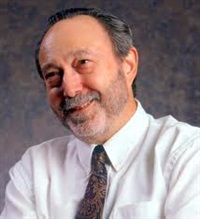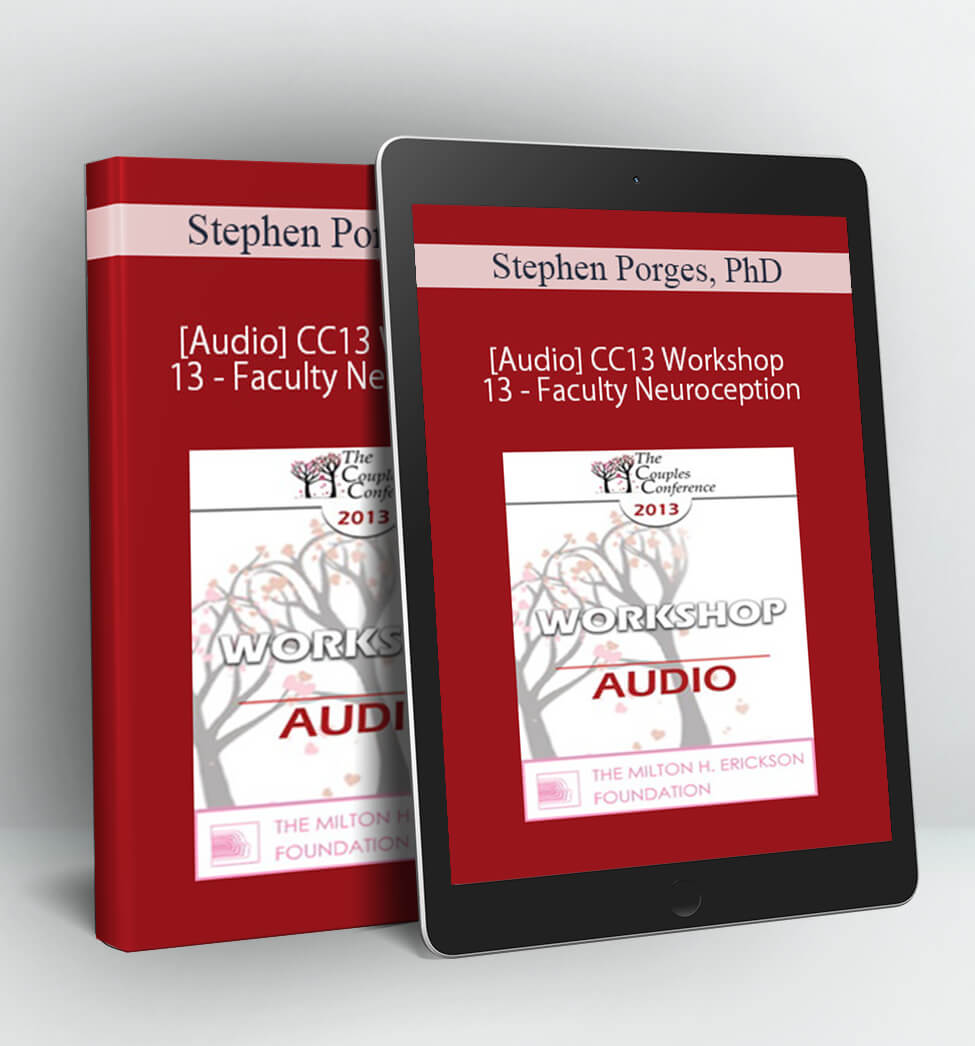The Polyvagal Theory – Stephen Porges
- Faculty:
- Stephen Porges, PhD
- Duration:
- 1 Hour 23 Minutes
- Format:
- Audio and Video
- Copyright:
- Feb 14, 2014
Description
Human responses to trauma and abuse are devastating and compromise subsequent social behavior and emotion regulation. Understanding the mechanisms underlying the “hardwired” response to life threat, may demystify these debilitating consequences. The Polyvagal Theory provides a plausible explanation of how trauma experiences and chronic abuse disrupt homeostatic physiological processes and social behavior and how clinical treatments might be designed to remediate these problems when trauma distorts perception and displaces spontaneous social behaviors with defensive reactions.
This presentation will focus on the restorative power of understanding the adaptive function of stress reactions as an important adjunct to treatment. By deconstructing the biobehavioral features of stress reactions, both client and therapist are better informed in their journey to a successful outcome. The presentation will emphasize the role of “neuroception,” a neurophysiological process through which our nervous system evaluates risk in the environment, without awareness and often independent of a cognitive narrative. Trauma may reset neuroception to protect us from others when there is no “real” danger. The presentation will inform the therapist about how to assess the deleterious consequences of trauma-related experiences by understanding the adaptive psychological, behavioral, and health features of each of the three “Polyvagal” visceral response strategies (i.e., social engagement, mobilization, and immobilization ) and how successful therapeutic interventions promote a neuroception of safety with the consequential improvements in mental and physical health by enabling mobilization and immobilization to occur without fear.
Faculty

Stephen Porges PhD Related seminars and products: 21
Professor
Kinsey Institute, Indiana University and Department of Psychiatry at the University of North Carolina- Chapel Hill
Stephen W. Porges, PhD, is Distinguished University Scientist at Indiana University, where he is the founding director of the Traumatic Stress Research Consortium within the Kinsey Institute. He holds the position of Professor of Psychiatry at the University of North Carolina and Professor Emeritus at the University of Illinois at Chicago and the University of Maryland.
Dr. Porges served as president of both the Society for Psychophysiological Research and the Federation of Associations in Behavioral & Brain Sciences and is a former recipient of a National Institute of Mental Health Research Scientist Development Award. He has published more than 300 peer reviewed scientific papers across several disciplines including anesthesiology, biomedical engineering, critical care medicine, ergonomics, exercise physiology, gerontology, neurology, neuroscience, obstetrics, pediatrics, psychiatry, psychology, psychometrics, space medicine, and substance abuse.
In 1994 Dr. Porges proposed the Polyvagal Theory, a theory that links the evolution of the mammalian autonomic nervous system to social behavior and emphasizes the importance of physiological state in the expression of behavioral problems and psychiatric disorders. The theory is leading to innovative treatments based on insights into the mechanisms mediating symptoms observed in several behavioral, psychiatric, and physical disorders.
He is the author of The Polyvagal Theory: Neurophysiological foundations of Emotions, Attachment, Communication, and Self-regulation (Norton, 2011), The Pocket Guide to the Polyvagal Theory: The Transformative Power of Feeling Safe (Norton, 2017) and co-editor of Clinical Applications of the Polyvagal Theory: The Emergence of Polyvagal-Informed Therapies (Norton, 2018).
Dr. Porges is also the creator of a music-based intervention, the Safe and Sound Protocol™, which currently is used by more than 1000 therapists to improve spontaneous social engagement, to reduce hearing sensitivities, and to improve language processing, state regulation, and spontaneous social engagement.
Speaker Disclosure:
Financial: Stephen Porges is a Distinguished University Scientist at Indiana University; and a professor at the University of North Carolina. Dr. Porges has intellectual property rights, and receives royalties from Integrated Listening Systems (now Unyte). In addition, he holds patent rights licensed to NeuralSolution for the technology embedded in PhysioCam and in technologies embedded in products marketed by Unyte. He is an author for W. W. Norton and receives royalties. Dr. Porges receives a speaking honorarium from PESI, Inc.
Non-financial: Stephen Porges has no relevant non-financial relationship to disclose.
Access Download The Polyvagal Theory – Stephen Porges right now!
Delivery Method:
After your purchase, you’ll get access to the downloads page. Here, you can download all the files associated with your order.
Downloads are available once your payment is confirmed, we’ll also send you a download notification email separate from any transaction notification emails you receive from Vinlearn.










